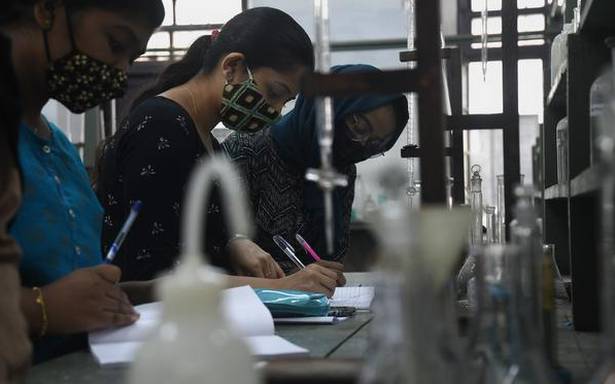‘Transmission will naturally go up, but State must allay parents’ fears and come up with contingency measures’
As the State prepares to reopen its schools, after a year-and-a-half of the pandemic outbreak, the event is likely to open up new chains of COVID-19 transmission, which could impact the current transmission dynamics.
While anxieties are likely to run high amongst parents, the key message for the public is not to panic when children fall sick, public health experts say.
“Naturally, a good number of children will be newly affected by COVID-19 when schools reopen. But we need to ensure that parents are well aware of this and reassure them that there is little to worry even if children test positive for COVID-19 because they rarely get serious disease,” B. Ekbal, chairperson of the State experts’ committee on COVID-19 says.
However, that said, how well-prepared is the State to tackle new surges in transmission in different pockets in the community is important. Equally important would be allaying the fears of parents at every turn.
It is pointed out that there is an evident age shift in disease transmission now and the maximum number of new cases are reported amongst the 18-31 age group. And when colleges are being reopened fully on October 18, it will be this age group that will be moving freely in the community. Local transmission is bound to go up.
Two-way transmission
“When children start going to school, there is the prospect of two-way transmission of Delta variant (and subsequent clustering of cases) – children getting infected and bringing it home to other adults in the family and children getting asymptomatic infection from the vaccinated adults in the household and spreading it in school. The Health Department’s figures show that nearly 75% of the infections continue to be asymptomatic,” says a public health expert
Even if the combined natural immunity due to infection and immunity derived from vaccination crosses 70% in the State, as long as Delta variant continues to be the dominant virus, the cycle of breakthrough infections, re-infections and family clusters are likely to continue in the State.
Vaccine-derived immunity
“Unlike in north India, where Delta variant swept through the population, rendering natural immunity to people, in Kerala the immunity profile is heterogeneous because the infection was controlled and most people were covered by vaccination. More people here would have vaccine-derived immunity rather than natural immunity and hence the rate of disease transmission among children after school re-opening is likely to be higher than it was in other States,” says T.S. Anish, a member of the experts’ committee.
Studies have proven that vaccine-derived immunity against COVID-19 begins to wane after three to five months. Hence regions in the State where natural infection has been less are more likely to be more vulnerable to disease transmission when schools reopen. The government must have hyper-local plans to monitor and control this eventuality.
Public health experts caution that Nature’s plans could be unpredictable and that the subtle nature of the evolving pandemic should not be discounted. The agility of the administration’s response is what will matter once schools reopen and they should be prepared to close schools for a short while, if required, depending on the situation, while taking parents into confidence at every turn.
Again, the State needs to analyse granular data at the district or taluk levels to plan surveillance and control measures.
Source: Read Full Article

